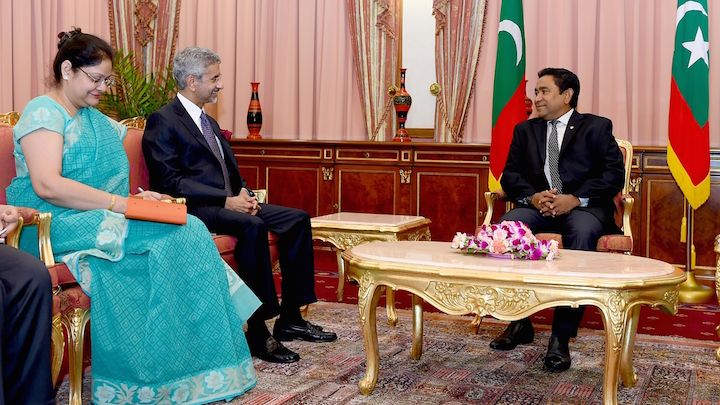Indian foreign secretary pledges “continued support” during official visit
During a courtesy call at the president’s office yesterday, Dr Jaishankar and President Abdulla Yameen “spoke of supporting each other in the international arena and in times of political distress.” The current administration is facing sanctions and mounting diplomatic pressure over the imprisonment of opposition leaders including former President Mohamed Nasheed.

12 Jan 2016, 09:00
Indian Foreign Secretary Dr S Jaishankar departed this morning after a one-day official visit to the Maldives for talks on strengthening bilateral cooperation.
During a courtesy call at the president’s office yesterday, Dr Jaishankar and President Abdulla Yameen “spoke of supporting each other in the international arena and in times of political distress.”
The foreign secretary “reassured the president of India’s continued support,” the president’s office said.
Yameen also assured the Indian prime minister’s special envoy of his commitment to strong bilateral ties with India and “went on to express his appreciation for India’s support of the Maldives in the international arena.”
Become a member
Get full access to our archive and personalise your experience.
Already a member?
Discussion
No comments yet. Be the first to share your thoughts!
No comments yet. Be the first to join the conversation!
Join the Conversation
Sign in to share your thoughts under an alias and take part in the discussion. Independent journalism thrives on open, respectful debate — your voice matters.




